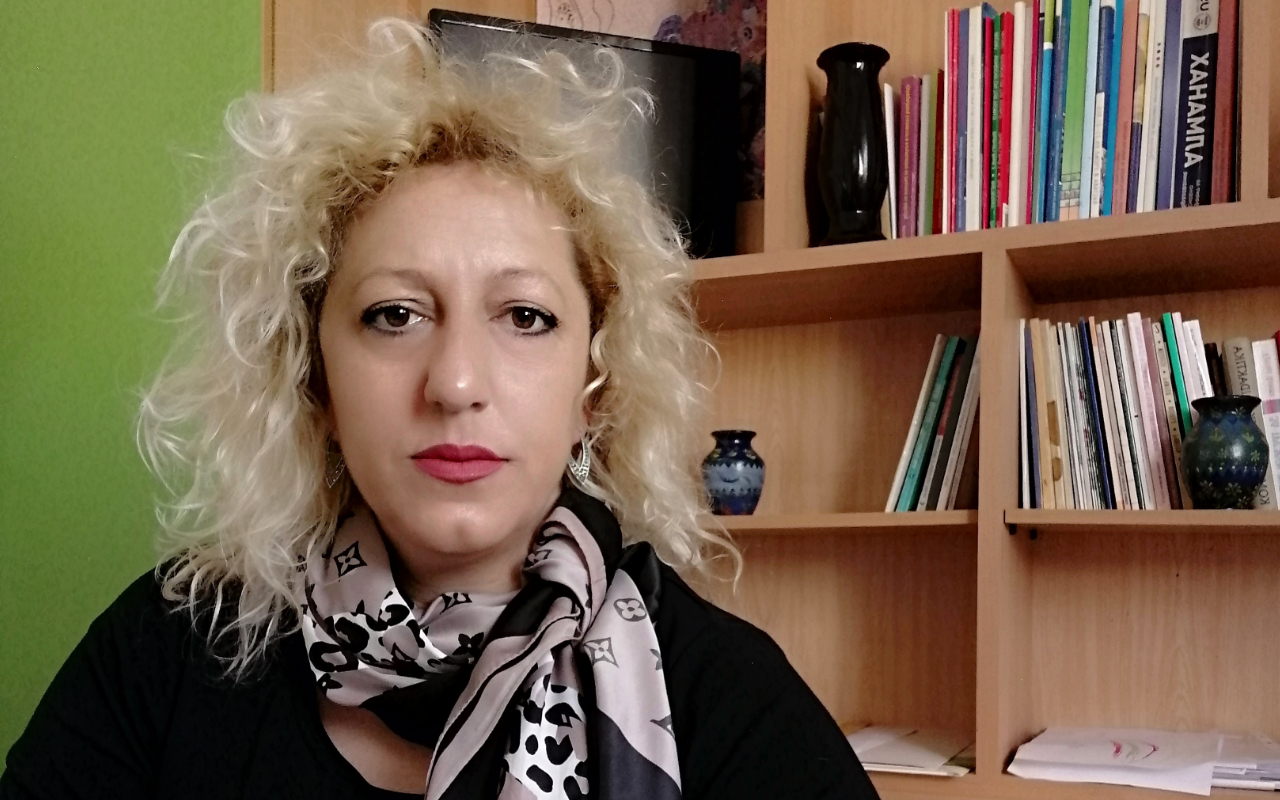In the words of Stojne Miteva: “Every hand extended to a woman survivor is a life saved”
Date:

More than ten years ago, Stojne Miteva began working as a psychologist in the first shelter center for victims of violence in Strumica, a city in south-eastern North Macedonia. Since 2019, at which point Strumica no longer had a shelter, Miteva has been the driving force behind the opening of a new center for victims in cooperation with the municipality and the business sector. In 2020, thanks to her advocacy work as a journalist and civil society representative, the largest shelter center in North Macedonia was opened, which can accommodate 12 women and their children.
In this interview, Stojne Miteva shares how the Counselling Centre offering psychosocial services for women survivors of violence operates. The Shelter is also supported by the EU-funded regional programme on ending violence against women “Implementing Norms, Changing Minds.”
![]()
The Counselling Centre offering psychosocial services for women victims of domestic violence in Strumica has been operating for one year now. So far, we have held about 500 appointments with 60 women and children who have reached out to us for help and support. In general, women find our services on their own, as cases of victims referred by other institutions are rare. Our team at the Counselling Centre works with them until the final step, either on minimizing the risks of domestic violence or providing other services, such as primary psychological assistance, emergency intervention for protection against violence, psychological assistance and support in case of long-term exposure to violence, and crisis intervention.
Our primary goal - to prevent domestic violence from snowballing into greater problems for both women victims and their children – guides our work. In cases where there are possible risks to the health and life of victims, we take immediate action and place the victim in the Shelter Centre, which is also managed by our organization. Thus, we not only offer protection for victims and their children, but we also carry out the psychosocial support process from a different aspect: we aim to empower women and restore their self-confidence, and at the same time we try to change their perspective of the overall situation.
This is possible through the training our professional team has received and through hiring a psychologist/gestalt therapist and a social worker/family systems therapist, with the financial support from the regional programme on ending violence against women “Implementing Norms, Changing Minds,” funded by the European Union. In addition to training, we also received all the equipment necessary to start our operation. In cooperation with the municipality, which is truly sensitive when it comes to victims of domestic violence, we also received our premises rent-free. To ensure the continuation of services for victims, the municipality agreed to provide funding for the Centre after the completion of the project.
It is also a great advantage that the Counselling Centre and the Shelter are run by the same organization, so any victim of violence can easily contact us. Our services not only support women from Strumica, but the entire south-eastern region. Although we are financially supported by the municipality of Strumica, our team has never refused to provide services to any woman just because she comes from another municipality. For us, every hand extended to a victim is a life saved.
Nevertheless, we see a growing need to increase the number of professional team members, given the fact that the number of women victims of violence is increasing. However, even with the resources currently at our disposal, women and children who receive these services will not lack anything. As an organization whose main goal is to offer protection, care and prevention from domestic violence, our next goal to be achieved in this calendar year is to provide an option for “open housing,” which, in a way, will complete the protection process in the south-eastern region."